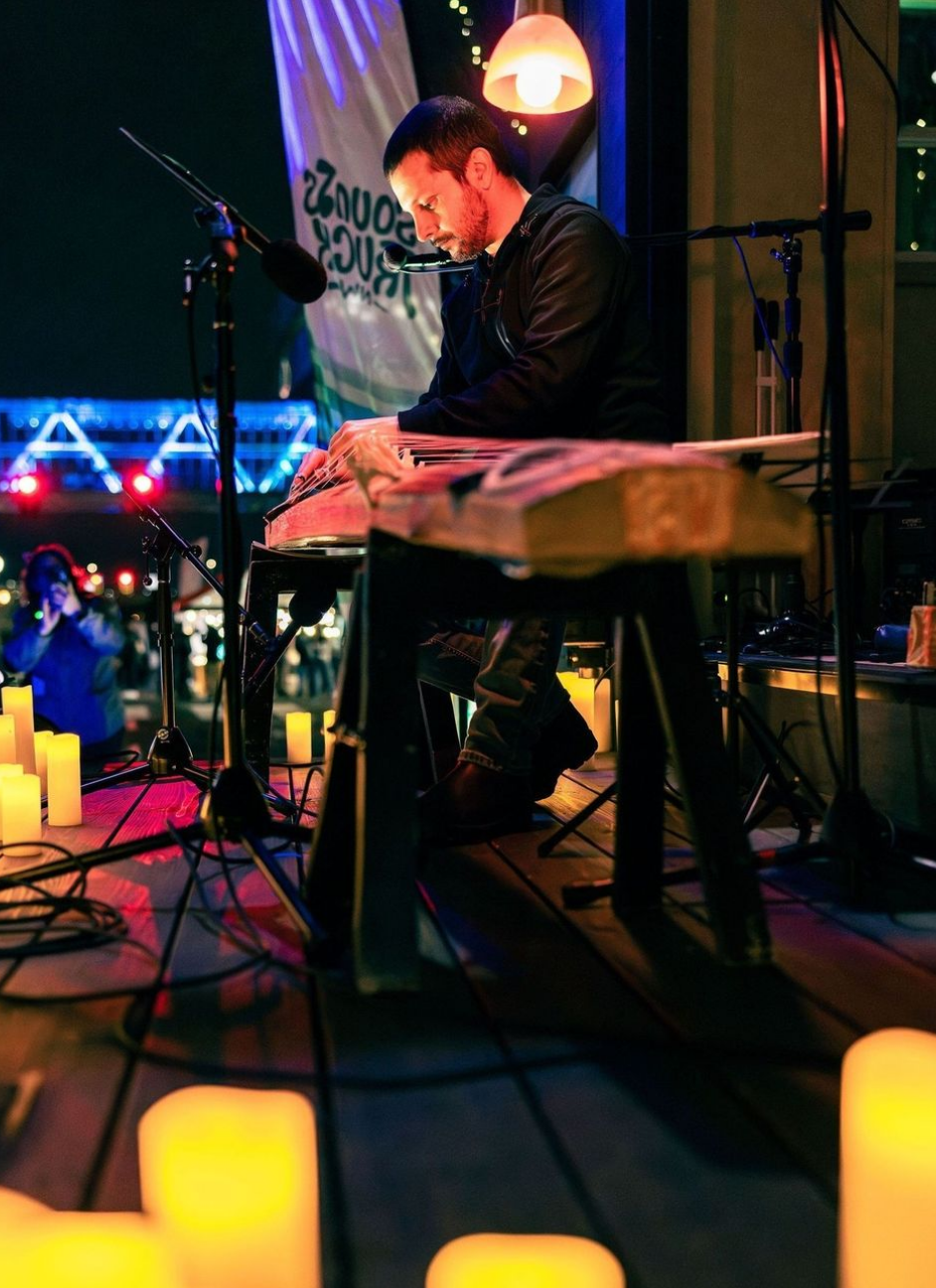sono_kiri is a solo music project by Josh Faber-Hammond.
Josh has been playing music since he was young. Starting with piano lessons in elementary school, he’s also studied trumpet, drums, and most recently Japanese koto from master Mitsuki Dazai.
He’s joined and founded a number of bands in Portland since 2007, primarily on drums, vocals, and electronics. Drumkit was his main instrument from the age of 13, and he found his rhythmic training invaluable when he transitioned to learning and playing koto.
After dedicated practice, he started performing as part of Oregon Koto-Kai in the Fall of 2015 and has since become a first-call player in the group. In recent years, he’s been fortunate to perform in ensembles with world famous koto virtuosos Kazue Sawai, Soju Nosaka, and Masayo Ishigure. Now, among his many current musical projects, he’s also studying to receive his instructor license from the Sawai Koto Institute, based in Tokyo, Japan.
Josh regularly performs koto in classical ensembles, in experimental music projects, in collaboration with electronic music producers, and solo. Live performances often feature a blend of meticulously crafted compositions and improvisation. In addition to performing, he serves on Oregon Koto-Kai’s board of directors and is a producer and artistic director for several annual music festivals held in the Pacific Northwest.
sono_kiri’s catalog encompasses a wide range of sounds, from electronic koto recordings to compositions for full koto ensemble. The latest album ‘Uchi nite’ is a fully acoustic collection of songs for both solo and ensemble performance.
To learn more about Josh’s collaborative projects, click below.

